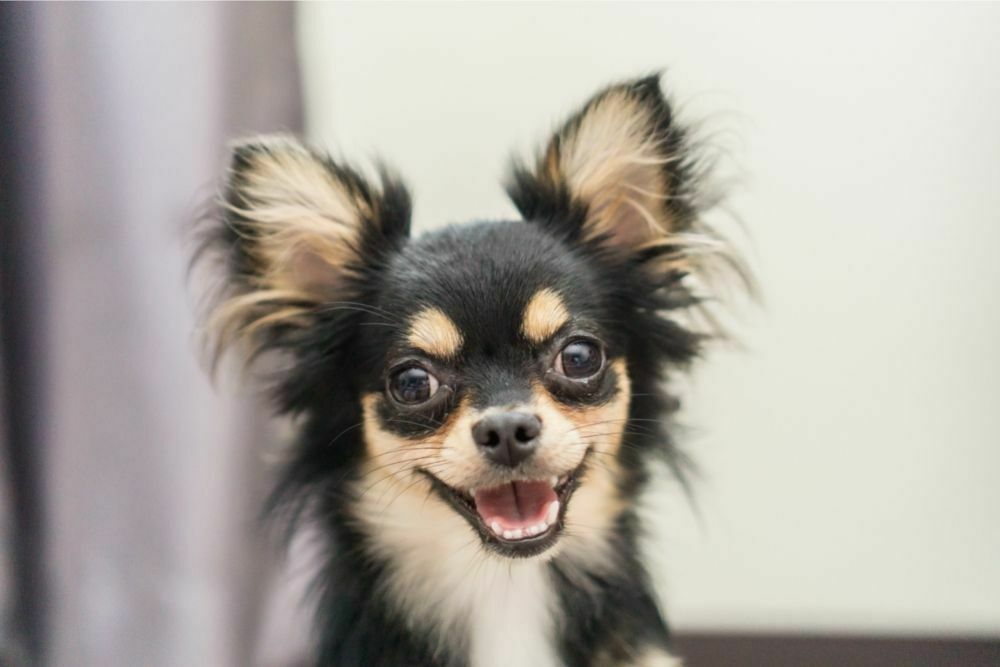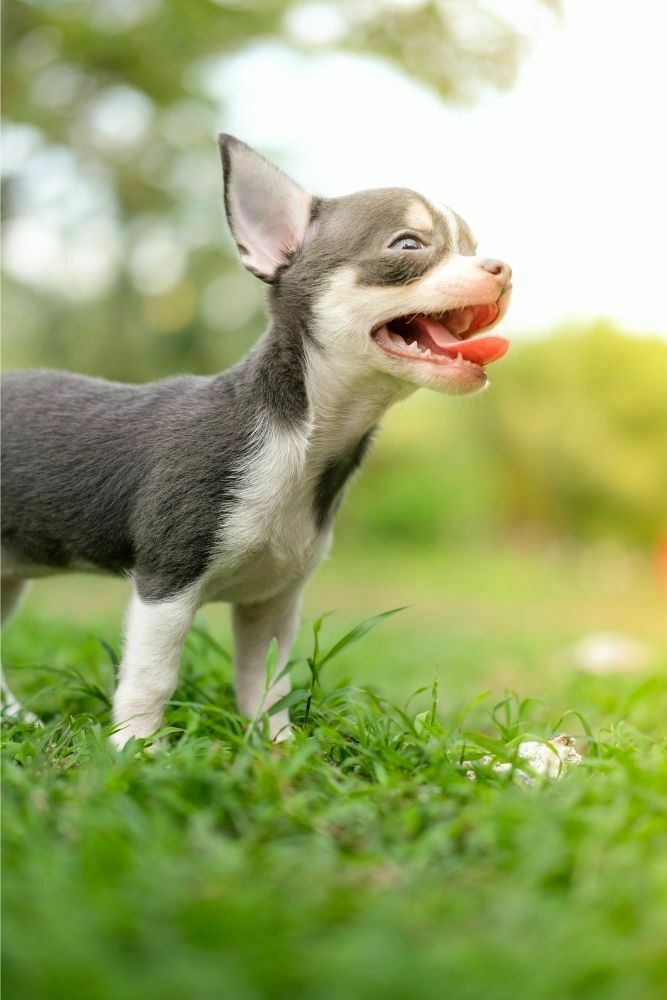
First-time puppy owners are often worried about their fur baby’s health and teething can be one of the biggest problems that new puppy owners face.
Just like us, dogs are not born with any teeth and within a few weeks they will start to grow their baby teeth, also referred to as milk teeth.
It’s completely normal for your puppy to lose these teeth once they reach a certain age, in order for their bigger adult teeth to come through, so they will be able to chew their adult food and treats.
When you bring your new best friend home for the first time, they will likely be at least eight weeks old. So, in a few weeks, they will start dealing with teething problems. This is why you will probably notice they want to chew everything they can get their paws on, including you!
Keeping your new puppy healthy and happy can seem daunting at first but don’t worry, I’ve done all the research you need to understand the world of puppy teething and how to minimize your puppy’s pain.
It’s important to know what to expect before taking on a brand new puppy in order to keep them safe and comfortable in their new home.
Are chihuahua puppies born with all their baby teeth?
Much like their doting owners, Chihuahua’s aren’t born with their baby teeth, they grow in later. However, this process happens a lot faster than with human babies. Chihuahua’s typically start to grow in their baby teeth at about two or three weeks old.
You’ll probably notice the front teeth will pop through first, then the larger fang-like ones called the canines come in next.
To know if your puppy has all of their baby teeth, they should have 28 in total, likely around eight weeks old.
What age do chihuahua puppies lose their baby teeth?
Like humans, Chihuahua’s will lose their baby teeth as they get older and start to grow adult teeth in their place.
This is necessary for them to be able to chew adult food and to adapt to the size of their jaw and skull.
You can expect your chihuahua puppy to lose all of their baby teeth by the time they reach three months old.
Your puppy will lose their teeth naturally, and they may fall out one by one, or they may lose a couple at a time, but this is all normal, and you needn’t worry if you stumble upon a pile of your puppy’s baby teeth near their bed or where they play. They will likely lose their teeth as they chew.
Once your puppy reaches eight months old they will likely have lost most or all of their baby teeth, although all puppies are different so don’t worry if yours still has one or two baby teeth.
Is it safe for chihuahua puppies to swallow their baby teeth?
As you’ve probably noticed, puppies are so busy and constantly chewing something, so you can never know exactly what’s going on in your puppy’s mouth at all times.
It’s normal to worry about your puppy when it comes to losing their baby teeth because they will likely swallow them. So, will your puppy’s baby teeth damage their insides? Well you can relax because the answer is no, swallowing baby teeth will not cause any internal damage to your puppy. They are very small and pretty blunt; your puppy should be able to pass them in their stool in a day or two.
That being said, you’re probably more likely to find your puppy’s baby teeth spotted around your home as they will fall out as a result of playing and chewing.

Do chihuahua puppies go through teething pains when they lose their baby teeth?
As humans often discover, tooth-related issues can be very painful or just a small annoyance. This is the same for dogs. Puppies will of course find losing their baby teeth and growing in their new adult teeth painful and irritating, you may even notice some bleeding in the mouth and on their toys, but this is completely normal and can be managed.
Make sure you provide your puppy with a good selection of teething toys to help with the pain and keep them biting their toys, not you or your favorite pair of shoes!
To keep on top of your puppies teething timeline, here’s what to expect from your fur baby’s chewers:
- Two weeks up to 12 weeks old – your chihuahua puppy’s baby teeth will start popping through
- 12 weeks – they start losing their baby teeth and adult teeth begin to grow in their place
- 12 weeks to eight months – the worst of the teething happens in these few weeks, expect to find lots of little teeth dotted around your home while your chihuahua chews absolutely everything in sight!
- Eight months onwards – teething should calm down and most if not all of your puppy’s adult teeth should have grown in
How do I know when my chihuahua has all its adult teeth?
When your Chihuahua is fully grown, they should have 42 teeth in total. These should be divided into 20 teeth on the top set and 22 teeth on the bottom jaw.
That being said, Chihuahua’s are actually prone to tooth problems, so you may not need to be alarmed if you notice they have a few missing. Plus, dogs can often lose their teeth due to rough play and chewing or eating. It’s also quite common for dogs not to grow all of their adult teeth until they are older than two years of age.
How to Keep You Chihuahua’s Teeth Healthy and Happy
Your dog’s dental health is just as important as it is for us humans. Failure to keep your dog’s teeth clean and healthy can result in a number of painful and even life-threatening diseases including liver, kidney and heart muscle damage.
Even when your dog is a puppy, their milk teeth still need to be kept clean. It’s a good idea to introduce teeth brushing to your puppy as early as possible, so they can get used to it in time for when their adult teeth come through.
There are lots of simple ways to keep your puppy or adult dog’s teeth and mouth healthy and happy. You may find the thought of exposing your hands to a biting puppy, but there are more than one way of keeping your dogs mouth clean. Here’s a few tips on maintaining excellent dental hygiene for your puppy/ dog:
- Brush their teeth with special toothpaste – you can purchase special doggy toothbrushes and toothpaste to keep your dogs teeth pearly white. Although a regular small toothbrush will suffice. Like with humans, it’s best to brush daily but if your dog is not a fan of brushing, doing this once a week is fine
- Treat them with dental chews – a dog favorite, dental chews are a great way to keep your dog’s mouth healthy. They also taste delicious and are super fun to chew, so they won’t be chewing your shoes and furniture.
- Lots of chew toys – another great way for your dog to exercise their jaw and occupy their need to chew, plus chew toys are a great way to help alleviate any teething pain your dog may be experiencing
- Check up with the vet – it’s essential to keep a close eye on your dog’s oral health to avoid serious health problems in the future. You should aim to get your dogs teeth checked once a year with your vet as they will be able to spot any health issues or signs of possible future issues that can be easily fixed.
Final Say
Don’t stress if your chihuahua puppy is losing their baby teeth slowly or all in one go. Every dog is different; as long as your puppy is happy and healthy, you have nothing to worry about.
Bleeding gums and an irritated puppy is also to be expected, so just make sure you do everything you can to comfort your puppy and maintain their oral health as best you can.
Make sure you provide your puppy with a good range of teething toys to keep their busy mouths occupied and away from your furniture and shoes. Good luck fur parents!
